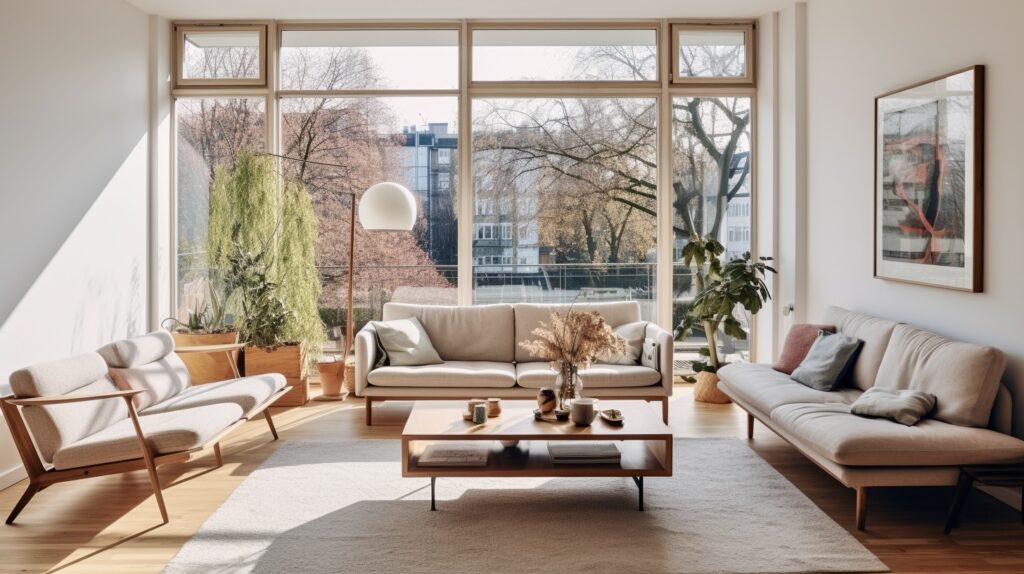Renting an apartment in Germany involves a process that can be quite different from what you might be used to in other countries. With its own set of regulations, terminology, and expectations, understanding how to navigate the German rental market is essential for a smooth and successful apartment search. This guide will walk you through the key steps to renting an apartment in Germany, from finding a place to signing the lease.
1. Understanding the Rental Market
Researching Neighborhoods
Before you start your search, it’s important to familiarize yourself with the neighborhoods in the city where you plan to live. Different areas offer varying amenities, public transport options, and costs. Consider factors such as proximity to work or school, local services, and overall atmosphere. Online platforms like ImmobilienScout24, WG-Gesucht, and others can provide valuable insights into neighborhoods and available properties.
Setting Your Budget
Determine your budget for rent, keeping in mind that rental prices can vary significantly based on location, size, and condition of the apartment. Generally, rent in major cities like Munich, Berlin, and Frankfurt is higher than in smaller towns. Remember to factor in additional costs such as utilities, which are usually not included in the rent. A good rule of thumb is to allocate no more than 30% of your gross monthly income to housing.
2. Searching for an Apartment
Using Online Portals
Online property portals are the most common way to find rental listings in Germany. Websites like ImmobilienScout24, Immowelt, and eBay Kleinanzeigen offer extensive listings with detailed descriptions, photos, and contact information. Filter your search based on your preferences, such as size, location, and budget.
Attending Viewings
Once you find a few promising listings, arrange viewings to visit the apartments in person. Be punctual and prepared to ask questions about the apartment’s condition, neighborhood, and terms of the lease. It’s also wise to inquire about the “Nebenkosten” (additional costs) which may include heating, water, and maintenance fees.
3. Application Process
Preparing Required Documents
To apply for an apartment, you’ll need to gather several documents, including:
- Proof of income: Recent pay stubs or a letter from your employer.
- SCHUFA report: A credit report from the German credit agency, showing your creditworthiness.
- Rental references: Previous landlord references or a statement confirming you have paid rent on time.
- Identification: A copy of your passport or ID card.
Submitting Your Application
Submit your application promptly after the viewing. In competitive markets, it’s essential to act quickly as good apartments can be rented out fast. Ensure all your documents are complete and accurately represent your financial stability and rental history.
4. Lease Agreement and Signing
Understanding the Mietvertrag
Once your application is accepted, you’ll receive a lease agreement (Mietvertrag). Carefully review the terms and conditions, including the rent amount, deposit (Kaution), duration of the lease, and responsibilities for repairs and maintenance. The deposit is typically equivalent to two to three months’ rent and is held by the landlord to cover any potential damages.
Signing the Lease
If you agree to the terms, you’ll sign the lease agreement. Make sure to get a copy of the signed contract for your records. The lease agreement will outline your rights and obligations, so it’s crucial to understand all the details before signing.
5. Moving In and Registration
Conducting a Move-In Inspection
Before moving in, conduct a thorough inspection of the apartment with the landlord or agent. Document any existing damages or issues and ensure they are noted in the lease agreement. This will help prevent disputes when you move out.
Registering Your Address
In Germany, it’s mandatory to register your new address with the local registration office (Einwohnermeldeamt) within two weeks of moving in. You’ll need to provide proof of your new address and identification. This registration is important for administrative purposes and accessing various services.
Renting an apartment in Germany requires understanding the local market, preparing the necessary documentation, and following legal procedures. By researching neighborhoods, setting a realistic budget, preparing for viewings, and carefully reviewing the lease agreement, you can find and secure an apartment that meets your needs. With this step-by-step guide, you’re well-equipped to navigate the German rental process and make your transition to a new home smooth and successful.
